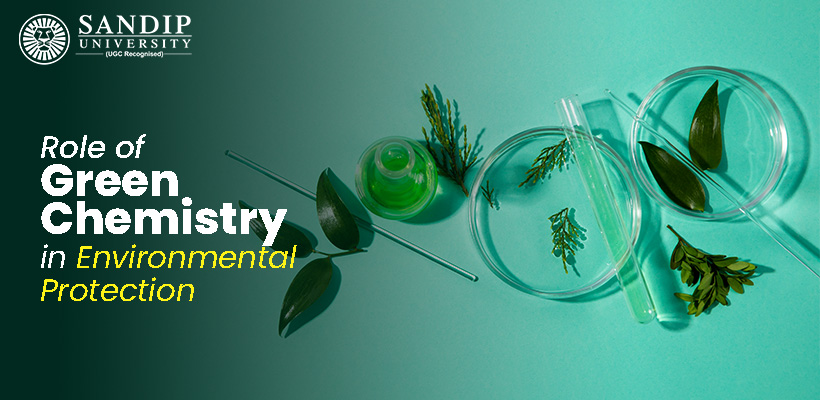Green chemistry plays a crucial role in saving the environment by promoting sustainable and environmentally friendly practices in the field of chemistry. It aims to minimise the negative impact of chemical processes and products on human health and the environment.
Many top environmental engineering colleges in Maharashtra focus on including the impact of green chemistry in their curriculum to help students understand its implications in the industry. Here are some key reasons why green chemistry is important in saving the environment:
Pollution prevention: Green chemistry focuses on preventing pollution at its source rather than managing or treating it afterward. By designing chemical processes and products that generate minimal or no hazardous waste, it helps reduce air, water, and soil pollution. This prevents the release of toxic substances into the environment and protects ecosystems and human health.
Energy conservation: Green chemistry promotes energy-efficient processes that minimise energy consumption and greenhouse gas emissions. It encourages the development of alternative energy sources and the use of renewable feedstocks. By reducing energy requirements and reliance on fossil fuels, green chemistry helps combat climate change and supports a sustainable energy future.
Safer chemicals and products: Green chemistry advocates the use of safer chemicals in manufacturing processes and consumer products. It emphasises the design of chemical compounds that are less toxic, biodegradable, and pose minimal risks to human health and the environment. This approach reduces the exposure to hazardous substances and enhances the overall safety of products throughout their life cycle.
Resource conservation: Green chemistry aims to maximise resource efficiency by minimising the consumption of raw materials, water, and energy. It encourages the use of renewable resources, recycling, and waste reduction. By optimising resource utilisation, green chemistry helps preserve natural resources, reduces waste generation, and minimises the environmental impact associated with resource extraction and depletion.
Sustainable development: Green chemistry aligns with the principles of sustainable development by integrating economic, environmental, and social considerations. It promotes the development of innovative technologies and processes that not only minimise environmental impact but also contribute to economic growth and societal well-being. Green chemistry solutions support the transition to a more sustainable and circular economy.
Regulatory compliance: As environmental regulations become more stringent, green chemistry provides a framework for companies to comply with these regulations and reduce their environmental footprint. By adopting green chemistry principles and practices, businesses can mitigate legal and financial risks associated with non-compliance while demonstrating their commitment to environmental stewardship.
Conclusion
Overall, green chemistry is important in saving the environment as it provides a systematic and holistic approach to chemical design, production, and use. By integrating environmental considerations into all stages of the chemical life cycle, green chemistry offers solutions that promote sustainability, protect human health, and preserve the natural world for future generations.

